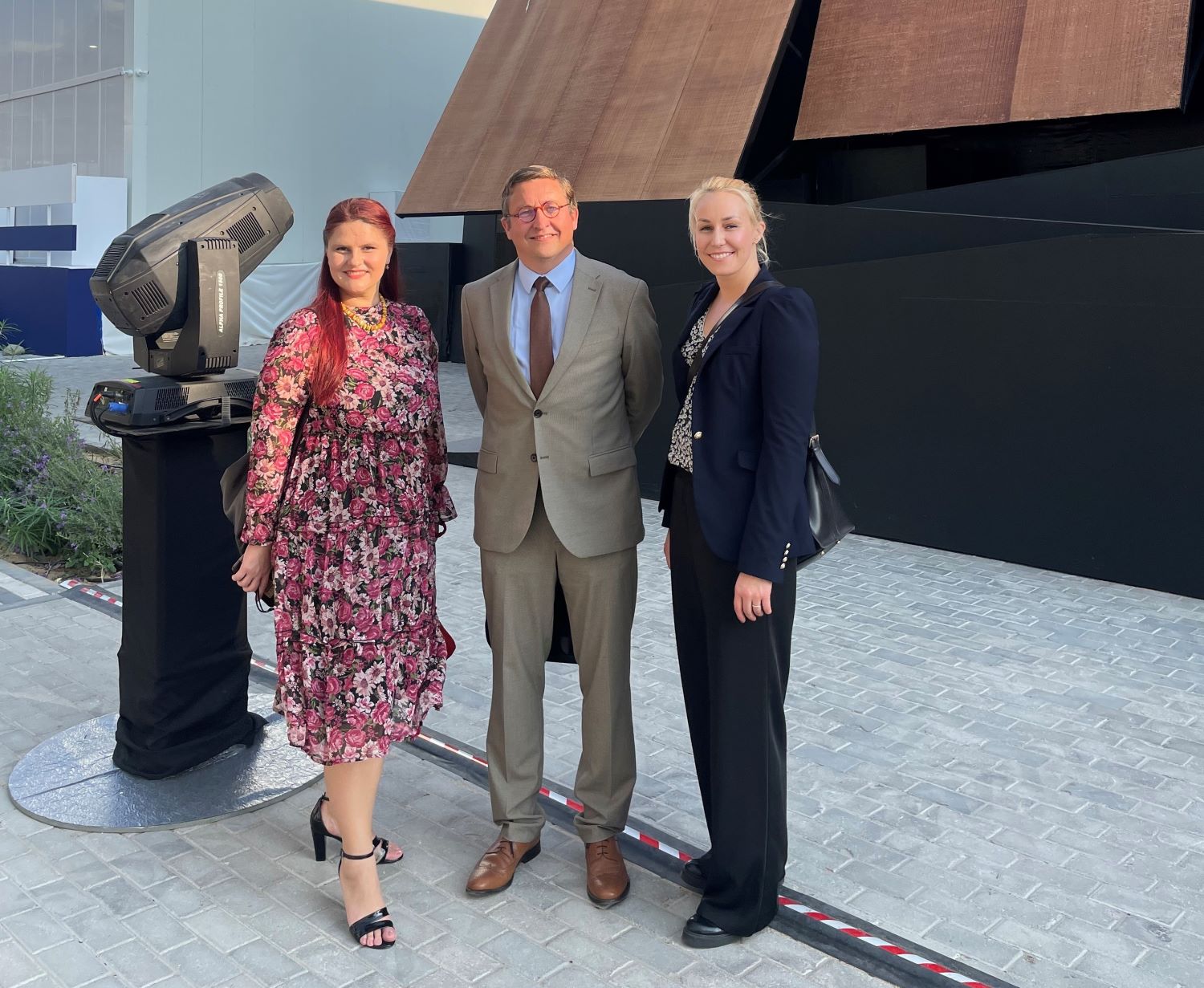Higher education institutions’ role in creating Smart and Sustainable Cities
Metropolia University of Applied Sciences’ Innovation Director Anna-Stina Tähkävuori attended United Nations Climate Change Conference (COP28) and participated as a panelist for Higher Education Institutions (HEI) Role in Promoting Local Governance of Climate Neutral and Smart Cities workshop hosted by EURASHE (European Association of Institutions in Higher Education) at UAE Ministry of Education’s Greening Education Hub on 2nd December 2023.
The panel illustrated the capabilities of higher education institutions in addressing climate challenges through their different missions – research, education and external engagement. It also puts a spotlight on the role of higher education institution in urban development, and offers policy recommendations that may be used globally, depending on local context.
"The ambitious goal of Helsinki City Strategy is to create a carbon-neutral Helsinki by 2030 and significant progress has already been made. I emphasized some practical examples about the actions made in the energy sector and developing circular economy by Circular Economy Cluster Programme. I also highlighted how Metropolia has been involved supporting the green transition in various ways with joint RDI and educational programmes. Urban Tech Helsinki, Campus Incubator Programme, Building Skills and Knowledge Center for Construction in Helsinki Myllypuro district and also Metropolia starting the U!REKA SHIFT Alliance coordination are just few examples of the close and valuable collaboration that we have for building more sustainable city with the next generation of professionals" Tähkävuori says.
Higher education institutions are hubs of innovation, research, and education, making them uniquely positioned to drive sustainable urban development and climate resilience. They are centers for cutting-edge research on climate science, sustainable technologies, and urban planning. They can educate the next generation of leaders, policymakers, and citizens about climate change and sustainable practices. Higher education institutions often work closely with governments and organizations to shape climate policies.

Pictured from left to right: Dalia Karlaite, Vilniaus Kolegija/University of Applied Sciences; John Edwars, Secretary General of EURASHE (European Association of Institutions in Higher Education); and Anna-Stina Tähkävuori, Metropolia’s Innovation Director.
European university alliance seeks to contribute to EU mission on Climate-Neutral and Smart Cities in EUI proposal
U!REKA SHIFT (Sustainable, Human, Inclusive, Future-proof Transition) aims to establish a long-term strategic and structural collaboration to integrate the partner universities’ education and research into a European University with a specific focus to contribute to a sustainable, human, inclusive and future proof transition to Climate-Neutral and Smart Cities.
U!REKA SHIFT is funded by Erasmus+ European Universities Initiative of U!REKA, a consortium of six European universities of applied sciences (full partners) and 26 associated partners that collaborate in education and research activities to educate, shape and empower the European professionals of tomorrow. Metropolia acts as the chair of the U!REKA consortium.
The Conference of the Parties (COP) is the main decision-making body of the United Nations Framework Convention on Climate Change (UNFCCC). It brings together the 198 Parties –197 nations plus the European Union – that have signed on to the Framework Convention. COP28 of 2023 revolves around the first Global Stock Take (GST) after the Paris Agreement.
More information
Anna-Stina Tähkävuori
Innovation Director, Metropolia University of Applied Sciences
anna-stina.tahkavuori [at] metropolia.fi (anna-stina[dot]tahkavuori[at]metropolia[dot]fi)